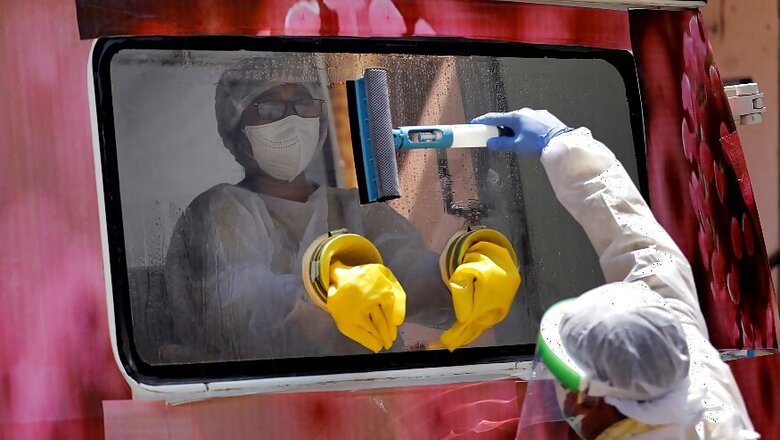
views
The outbreak of COVID-19 has had a deep impact on healthcare delivery, creating a state of emergency across nations and particularly impacting older citizens or those with co-morbidities like cardiovascular and respiratory diseases as well as malignancies.
In response, Prime Minister Narendra Modi imposed a countrywide lockdown from March 25 to prevent the spread of the pandemic in the second-most populous nation in the world. The lockdown has not been without its difficulties and challenges and the government has since introduced zoning to lift restrictions in areas with a low number of cases. The major cities are all designated hotspots.
India has seen the same peak in demand for personal protective equipment (PPE) as other nations and the same shortages. In response to profiteering, the government regulated and fixed prices on hand sanitiser and masks on March 13, introducing fines and up to seven years' imprisonment for the worst offenders breaking the rules.
Unlike most affected nations, India did not initially introduce widespread testing. However, as the number of cases increased, the Indian Council of Medical Research (ICMR) revised testing guidelines on March 20 and then again on April 9.
Since the guideline revision, the total number of tests has increased. But they are still less per million in comparison to many other developing nations. It is notable that India has reported a positivity rate of 4% in all the tests done, comparably less than the worst-affected countries.
India’s percentage of negative tests may be attributed to timing of the tests, sample types and accuracy of the tests. Current data indicates that the Covid-19 case fatality is approximately 3% in India, compared to a global rate of 7% (May 2020).
Testing was initially limited to government hospitals/institutions. However, the ICMR approved testing facilities at labs certified by the National Accreditation Board for Testing and Calibration Laboratories (NABL) on March 21 to make testing more widely accessible. It was recommended to test with RT-PCR to detect viral RNA in the first seven days of the onset of symptoms, and antibody testing after that.
However, rapid antibody kits have not been without controversy. Several Indian states reported that the test kits were faulty. The Chinese manufacturers though claimed the problem was with the way they were being used by healthcare workers. Rapid antibody tests were withdrawn in view of wide variation in sensitivity for surveillance purposes.
Earlier, the ICMR had asked all the states to put on hold the use of rapid testing kits for some time after inconsistencies were found in the test results. It later said that these kits could be used only for surveillance. Since February 15, ICMR has initiated sentinel surveillance to detect community transmission of Covid-19. The surveillance sites have been scaled up from 16 till February 29 to 51 by March 15.
There is currently no approved medical therapy for Covid-19 management although many studies are underway to find a treatment. The ICMR initially recommended the use of hydroxychloroquine as a prophylaxis for healthcare workers and close contacts of the patients. Usage has not been supported with evidence and may in fact be fatal in view of associated cardiotoxicity.
On April 12, the ICMR released a call for participation in a clinical trial for convalescent plasma therapy in Covid-19 patients, but did not recommend this therapy as a treatment modality.
In conclusion, India has implemented an effective lockdown that has helped prevent widespread community transmission. Appreciating that the pandemic has to reach a peak before a baseline is established, predicting the statistics in the post-lockdown era is not yet possible. However, the lockdown has bought the healthcare system time to prepare to fight Covid-19 and we are facing the future positively.
(Dr Abhishek Shankar is Assistant Professor in Radiation Oncology at Lady Hardinge Medical College & SSK Hospital, Delhi. Dr Deepak Saini is Project Officer at Cancer Control and Prevention Division of Indian Society of Clinical Oncology, Delhi. Karen Watts is Head of Communications and Engagement at ecancer, UK. Views are personal.)


















Comments
0 comment